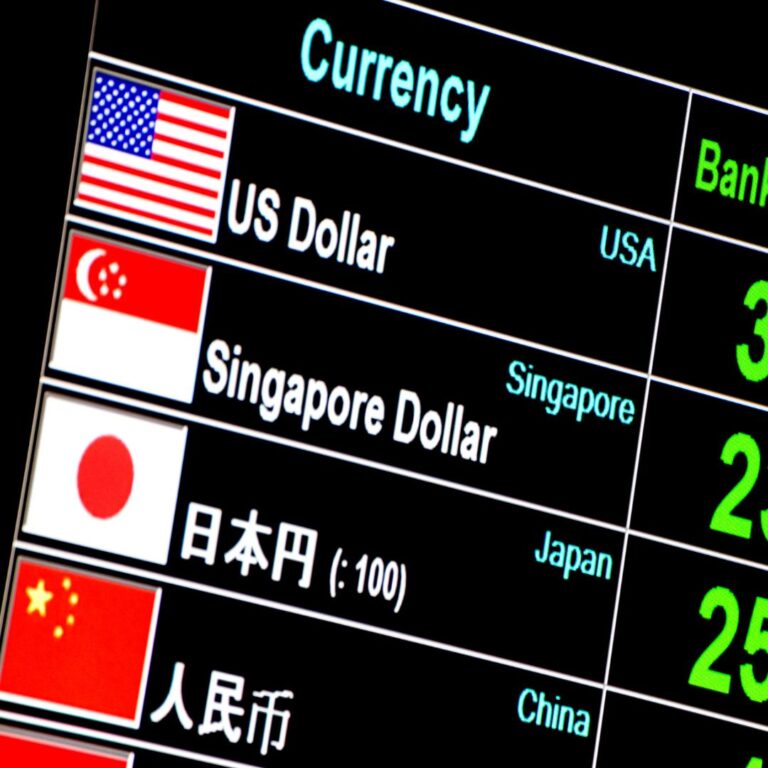Turaths & Todays : Muamalat Essentials Class #1
This write up is a summary of the Muamalat Essentials class and contains some key points mentioned by the teacher, Ustaz Aminuddin Abu Bakar during the class. If you find the notes valuable and am keen to join the class, then register here!
What Is Our Attitude Towards Wealth?
The Prophet ﷺ would frequently recite the following supplication:
اللهم إني أسألك الهدى والتقى والعفاف والغنى
“O Allah, I ask You for guidance, piety, chastity, and wealth.”
This dua demonstrates that seeking wealth is not inherently discouraged in Islam. Instead, it is seen as a means to enhance one’s faith, contribute to society, and fulfill one’s responsibilities.
Furthermore, there are narrations that highlight the virtues of strength and capability—including financial strength. The Prophet ﷺ mentioned that a strong believer is better and more beloved to Allah than a weak believer, although there is goodness in both.
Looking at Islamic history, we see that some of the most impactful companions—Abu Bakr, Uthman ibn Affan, and Abdur Rahman bin Auf (RA)—were individuals who used their wealth to benefit the Ummah, supporting the spread of Islam and providing for those in need.
The Quran’s Perspective on Wealth
Unlike some philosophies that promote extreme asceticism, Islam encourages believers to seek lawful provisions and benefit from the bounties of this world.
In fact, in Surah Al-Baqarah (2:268) and Surah Al-Jumu’ah (62:10), wealth is described as “Fadla” (bounty), emphasizing that it is a gift from Allah rather than something to be shunned.
ٱلشَّيْطَـٰنُ يَعِدُكُمُ ٱلْفَقْرَ وَيَأْمُرُكُم بِٱلْفَحْشَآءِ ۖ وَٱللَّهُ يَعِدُكُم مَّغْفِرَةًۭ مِّنْهُ وَفَضْلًۭا ۗ وَٱللَّهُ وَٰسِعٌ عَلِيمٌۭ (2:268)
“The Devil threatens you with the prospect of poverty and commands you to immorality, while Allah promises you forgiveness and great bounties from Him. And Allah is All-Bountiful, All-Knowing.”
فَإِذَا قُضِيَتِ ٱلصَّلَوٰةُ فَٱنتَشِرُوا۟ فِى ٱلْأَرْضِ وَٱبْتَغُوا۟ مِن فَضْلِ ٱللَّهِ وَٱذْكُرُوا۟ ٱللَّهَ كَثِيرًۭا لَّعَلَّكُمْ تُفْلِحُونَ (62:10)
“Once the prayer is over, disperse throughout the land and seek the bounty of Allah. And remember Allah often so you may be successful.”
These verses make it clear that seeking wealth and sustenance is not just allowed—it is encouraged, so long as it is done ethically and within the bounds of Shariah.
Prophetic Narrations on Wealth
The Prophet ﷺ made multiple duas related to wealth, reinforcing its importance in a believer’s life:
- Seeking protection from poverty:
اللهم إني أعوذ بك من الكفر والفقر
“O Allah, I seek refuge in You from disbelief and poverty.” - Praying for someone’s wealth to increase:
اللَّهُمَّ أَكْثِرْ مَالَهُ وَوَلَدَهُ
“O Allah, increase his wealth and offspring.” - Asking directly for wealth:
اللَّهُمَّ إِنِّي أَسْأَلُكَ الْهُدَى وَالتُّقَى وَالْعَفَافَ وَالْغِنَى
“O Allah, I ask You for guidance, piety, chastity, and wealth.”
Additionally, there is a famous Arabic proverb that states:
كاد الفقر أن يكون كفرا
“Poverty can nearly lead to disbelief.”
This reinforces the idea that financial stability and prosperity are important for maintaining dignity, faith, and the ability to help others.
Maqasid Al-Shariah: The Objectives Behind Every Ruling
Every ruling in Shariah is not arbitrary; rather, it is designed to fulfill a purpose. This is why we have the concept of Maqasid al-Shariah—the objectives of Islamic law—which ensures that every ruling aligns with one or more of the following five universal principles:
- Religion (Deen) – Protecting faith and ensuring the ability to worship freely.
- Life (Nafs) – Safeguarding human life and well-being.
- Wealth (Maal) – Ensuring financial justice and economic stability.
- Intellect (Aql) – Promoting knowledge and protecting the mind from harm.
- Honor (Irdh) – Preserving human dignity and social harmony.
For example, when studying Muamalat (Islamic financial transactions), we do so to preserve our religion—ensuring that our financial dealings remain ethical and Shariah-compliant.
The core philosophy behind these objectives is beautifully summed up in the Islamic legal maxim:
جلب المصالح ودرء المفاسد
“To attain benefits (Maslahah) and prevent harm (Mafsadah).”
This principle serves as the foundation of Islamic law, ensuring that every ruling brings benefit to society while preventing injustice, exploitation, and harm.
Understanding Maqasid al-Shariah allows us to see Islamic law not as a rigid set of rules, but as a dynamic system that prioritizes justice, fairness, and the overall well-being of humanity.
Our rich tradition
Islam did not come to abolish all existing financial practices, but rather, it refined and restructured them to ensure fairness and ethical dealings. Harmful activities, such as usury (Riba), were prohibited—often in stages—while beneficial financial models were encouraged, such as Mudharabah (profit-sharing partnerships).
One of the best examples of Mudharabah is the business partnership between the Prophet ﷺ and our mother Khadijah (RA). She provided the capital, and he managed the trade in Sham (Syria)—a model that continues to be widely used in Islamic finance today.
The depth of Muamalat in our scholarly tradition is evident in classical Islamic texts. Many of the Turath books, despite their vast and voluminous content, dedicate at least one-third of their discussions to Muamalat (financial transactions). This is because many of the scholars who authored them were also active traders and businessmen, making their insights not just theoretical, but deeply practical.
This rich legacy reminds us that Islamic finance is not a modern invention, but rather a continuation of a well-established tradition that has shaped economies for centuries.
The world economic system
Throughout history, various economic theories and systems have shaped global markets. However, the fall of the Ottoman Empire led to a gradual decline in Islamic economic systems, especially as many Muslim-majority regions fell under colonial rule.
While there were initial revival efforts in the 19th century, the modern resurgence of Islamic finance came through the introduction of Islamic banks. Despite these efforts, even Muslim-majority countries today do not operate fully under an Islamic economic system, as their financial structures remain heavily reliant on interest-based banking.
In response to these challenges, scholars and financial professionals have taken a pragmatic approach. Where reinventing the system entirely is not feasible, they engage in deconstructing conventional financial instruments, removing elements that contravene Shariah, and setting up governance frameworks to ensure Shariah compliance.
One example is the transition from the gold and silver (Dinar & Dirham) standard to paper money. Under the Bretton Woods Agreement, the US Dollar (USD) was originally backed by gold, meaning it could be redeemed for its value. However, in 1971, President Nixon suspended the gold convertibility, leaving the world with a fiat currency system backed only by government credibility.
Recognizing the reality of the modern financial system, scholars from the Organisation of Islamic Cooperation (OIC) convened to discuss the Shariah status of paper money. Their conclusion? Paper money serves as a valid medium of exchange and takes the same ruling as gold and silver in financial transactions.
Some scholars reference Imam Malik (RA), who stated that if a society collectively accepts even leather as currency, it becomes valid. However, rather than blaming external systems, we must acknowledge our own economic weaknesses and work towards strengthening our financial independence, paving the way for a more sustainable and ethical economic future.
Fiqh Muamalat: The Foundation of Islamic Financial Law
In Islamic law, the primary sources of Shariah are the Quran and Sunnah. However, when it comes to Muamalat (financial transactions), its foundational principle is based on الاستصحاب (Istishab)—the presumption of continuity or returning to its original ruling.
This principle can be observed in the case of cigarettes, which were initially deemed permissible. However, as scientific evidence revealed their harmful effects, scholars ruled them haram in accordance with the Prophetic hadith:
لا ضرر ولا ضرار
“There should be no harm (Dharar) nor reciprocating harm (Dhirar).”
This hadith forms the basis of many Islamic legal maxims, distinguishing between unintentional harm (Dharar) and intentional harm (Dhirar) in financial and contractual dealings.
The Core Legal Maxim in Muamalat
One of the most fundamental maxims in Islamic finance is:
✅ “The original ruling in transactions is permissibility.”
✅ “The original ruling in worship is impermissibility unless stated otherwise.”
This contrast highlights the flexibility of Muamalat in adapting to new financial instruments and evolving market practices. Unlike acts of worship, which are strictly defined and unchangeable, transactions remain permissible unless they contain explicitly prohibited elements such as:
❌ Riba (usury/interest)
❌ Gharar (excessive uncertainty)
❌ Maysir (gambling/speculation)
❌ Unjust enrichment
This dynamic approach allows for new payment methods, trade structures, and investment tools, as long as they align with Shariah principles.
Understanding Prohibitions in Islamic Law
One may ask: Why are certain things prohibited in Islam?
For example, the prohibition of pork. While some argue that pigs are unclean, modern scientific advancements could make them cleaner than chickens. Yet, the prohibition remains absolute because it is a تعـبـديـة (Ta’abbudiyyah) ruling—a command that is followed out of servitude to Allah, beyond human reasoning.
Similarly, in Muamalat, certain prohibitions exist not because they are economically inefficient, but because they violate fundamental ethical and moral principles set by Allah, who has full knowledge of what is beneficial or harmful.
The Methodology Behind Islamic Rulings
Islamic scholars follow a systematic methodology to analyze, derive, and apply rulings. This process involves assessing:
📖 Reliability – Ensuring the authenticity of the ruling’s source.
📜 Sources – Deriving rulings from the Quran, Sunnah, Ijma (consensus), and Qiyas (analogical reasoning).
💡 Meaning – Understanding the context, reasoning (‘Illah), and objectives (Maqasid al-Shariah) behind each ruling.
Because of these differences in methodology, we see divergent opinions across the four major schools of thought (Madhahib). Each school follows a rigorous scholarly process and can trace its methodology back to the Prophet ﷺ.
Yet, despite their intellectual brilliance, scholars throughout history remained humble in their approach. Even after years of study and effort, they would acknowledge:
“Our rulings are based on the best knowledge available, yet we accept that there is always a possibility of error.”
This humility is a hallmark of Islamic scholarship, ensuring that Fiqh (jurisprudence) remains a living, evolving discipline that serves the Ummah while staying true to its divine foundations.
If you find the notes valuable, register for the class here!








